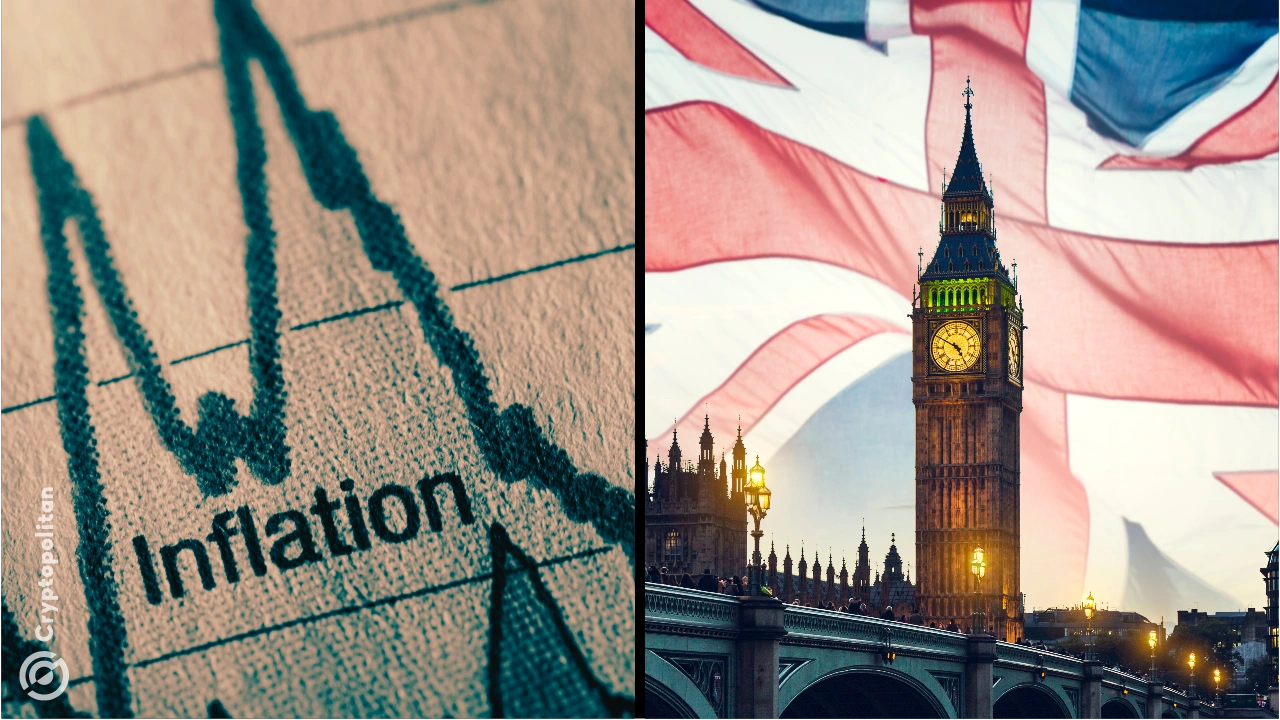UK inflation data from the Office for National Statistics revealed that inflation in the jurisdiction soared to 2.6% in November, aligning with economists’ forecasts.
Data released by the Office for National Statistics shows that the UK’s November Year-on-Year (YoY) inflation rose to 2.6% from 2.3% recorded in the 12 months leading to October. This marked a second consecutive monthly increase.
Consumer Price Index with housing costs (CPIH) surges by 3.5%
According to the released data, the Consumer Price Index, including owner-occupiers’ housing costs (CPIH), surged by 3.5% in the 12 months to November 2024, up from 3.2% in the 12 months to October in the UK.
The monthly CPIH increased by 0.2% in November 2024, compared with a 0.1% fall recorded in November 2023.
The monthly CPI rose by 0.1% in November 2024 in the UK, compared with a fall of 0.2% in November 2023. The November Core Consumer Price Index (YoY) came in at 3.5%, falling short of Reuters’ 3.6% forecast by 0.1%. The November MoM Core CPI fell to 0.0% from 0.4%.
Headline price rises that were initially expected to tick higher in the following months hit a three-and-a-half-year low of 1.7% in September. The projected uptick was partly due to an increased regulator-set energy price cap this winter.
Joe Nellis, an economic adviser at accountancy MHA, projected that the upward trend could continue in the next few months, citing the long-term pressures of a tight domestic labor market as well as the energy market.
Nellis also added that the underlying structural issues would be worsened and aggravated by the government’s recent decisions, which include higher public sector pay settlements and increased minimum wage. He also mentioned that the pressure on businesses caused by a surge in tax contributions could also inflame the structural issues.
Inflation persistence hints at BOE unlikelihood to cut interest rates
Inflation has persisted in the service sector, which makes up the dominant part of the economy of the UK. The rising inflation in the sector has led to a high likelihood of no interest rate cut during the Bank of England’s final meeting of the year.
The Office for National Statistics reported earlier this week that regular wage growth strengthened by rising from 4.9% over July-September to 5.2% over the August-October period. The growth further reinforced speculations about the interest rate cuts. Research group Capital Economics supports the claim that the BOE will most likely rule out the expected December rate cut.
According to George Dibb, associate director for economic policy at the Institute for Public Policy Research (IPPR), the overall inflation figures were broadly in line with projections made by the central bank of England. Dibb raised concerns that the UK’s weaker-than-expected growth now lags behind the Bank’s projections.
If the Bank of England decides to leave the monetary policy unchanged in its final meeting, the central bank will complete the year with only two interest rate cuts that have brought the rates from 5.25% to 4.75%.
Meanwhile, the U.S. central bank is expected to slash rates by 0.25 points during its last meeting on Wednesday, bringing its total yearly cuts to a full percentage point.
Land a High-Paying Web3 Job in 90 Days: The Ultimate Roadmap





